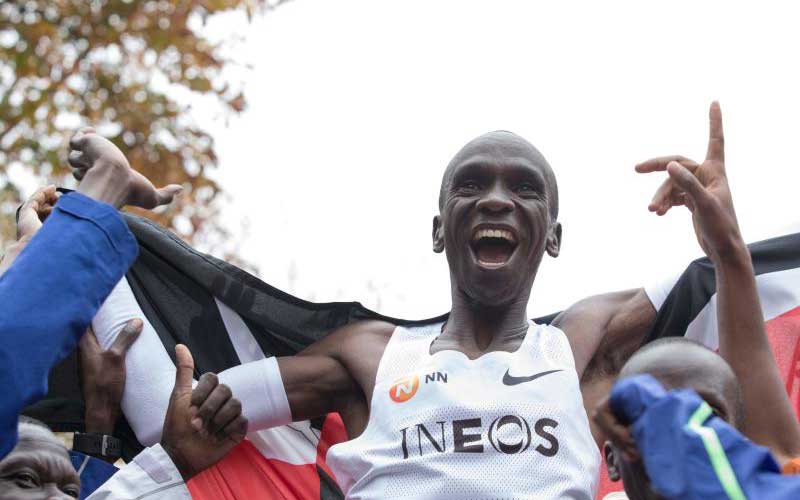×
The Standard e-Paper
Join Thousands Daily

With metronomic precision, Eliud Kipchoge raced into history yesterday on the Hauptallee in Vienna by becoming the first man to achieve the barrier-breaking sub-two-hour marathon as part of the INEOS 1:59 Challenge.
The greatest marathon runner of all time, Kipchoge achieved a jaw-dropping time of 1:59:40.2 to secure his moon-landing moment.